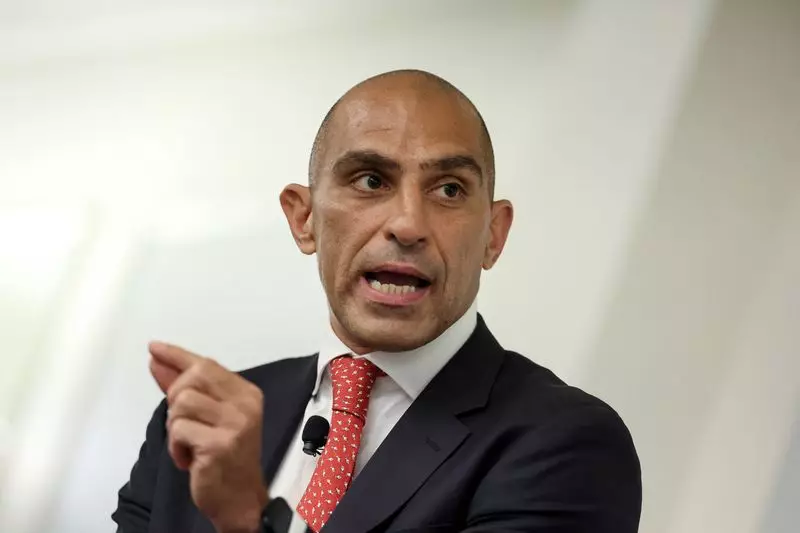In a significant development for cryptocurrency oversight in the United States, Rostin Behnam, the current chair of the Commodity Futures Trading Commission (CFTC), has announced his impending resignation, effective upon the inauguration of President-elect Donald Trump on January 20. This shift heralds an opportunity for Trump to appoint new leadership, potentially instigating a major overhaul of the U.S. approach to cryptocurrency regulation. Historically, the CFTC has played a secondary role in financial governance compared to its counterpart, the Securities and Exchange Commission (SEC). However, with the ascension of a new administration that appears more supportive of the cryptocurrency industry, the CFTC could see its role expand significantly.
Behnam’s presence at the helm since 2021 was marked by an inclination towards a more lenient regulatory approach concerning digital assets. As a Democratic commissioner, Behnam took charge during a time of heightened interest in cryptocurrency, but he faced internal and external pressures to assert a stronger regulatory stance. His departure will enable Trump to place his preferred candidates in high-ranking positions, setting the stage for changes that could shape the future of digital asset regulation.
Speculations abound regarding Behnam’s successors, with the administration considering various candidates from within the agency, namely Republican commissioners Summer Mersinger and Caroline Pham. External prospects, including former CFTC Commissioner Brian Quintenz and attorneys Josh Sterling and Neal Kumar, are also being evaluated. While the interim chair would require Senate confirmation for a permanent appointment, Trump’s inclination toward candidates who favor a crypto-friendly regulatory framework can drastically alter the landscape.
The potential shift in leadership raises questions about the overall direction the CFTC will take in regulating the burgeoning cryptocurrency market. While Behnam’s term involved accompanying legal actions against notable exchanges like FTX, viewed as insufficient by some, there is a palpable urgency to create comprehensive regulations that encompass the entire spectrum of digital assets. The appointment of officials who lean toward permissive regulations may pave the way for a developmental phase, fostering innovation while still attempting to safeguard consumer interests.
One salient point raised by Behnam during his tenure was the urgent need for clearer regulations governing the cryptocurrency space. He underscored the significant areas remaining unregulated under current legislation, which have created barriers for both companies and consumers in navigating the market. His statement to the Financial Times expresses a critical sentiment: “You still have a large swath of the digital asset space unregulated in the U.S. regulatory system and it’s important … that we fill this gap.” This assertion resonates deeply with stakeholders eager for consistency and transparency concerning regulatory frameworks.
Trump’s administration is likely to pivot toward more permissive policies, especially with Paul Atkins, known for his advocacy of cryptocurrency-friendly regulations, expected to take the reins at the SEC. This parallel leadership dynamic across regulatory bodies could lead to a fragmented approach, where the CFTC adopts a more relaxed stance compared to the SEC, which might maintain stricter scrutiny.
Beneath the umbrella of digital assets, the discussion also extends to event-related markets, a domain that Behnam scrutinized with caution. The CFTC faced challenges when it rejected certain derivative contracts tied to political outcomes, only to have courts side with event marketplaces like Kalshi. This evolving landscape of legal betting on political events raises broader questions about the intersection of legality, ethics, and social responsibility within the context of gambling.
Behnam expressed concern over the blurred lines of legality, stating that the prevalence of technology combined with significant consumer interest could lead to potential misuse and complex legal dilemmas. As the regulatory framework is reshaped, the role of the CFTC as a potential ‘spot regulator’ for digital commodities will require keen oversight to ensure responsible growth while upholding legal standards.
As the Trump administration prepares to take office, significant transformations in the regulatory landscape of cryptocurrencies loom ahead. The impending leadership shift at the CFTC, combined with the anticipated focus on more business-friendly regulations, suggests an era where innovation is encouraged. However, this broad-leaved approach necessitates vigilance to protect consumers and ensure ethical advancement within the marketplace. Ultimately, how these regulatory changes unfold will play a crucial role in defining the future of cryptocurrencies in America.

